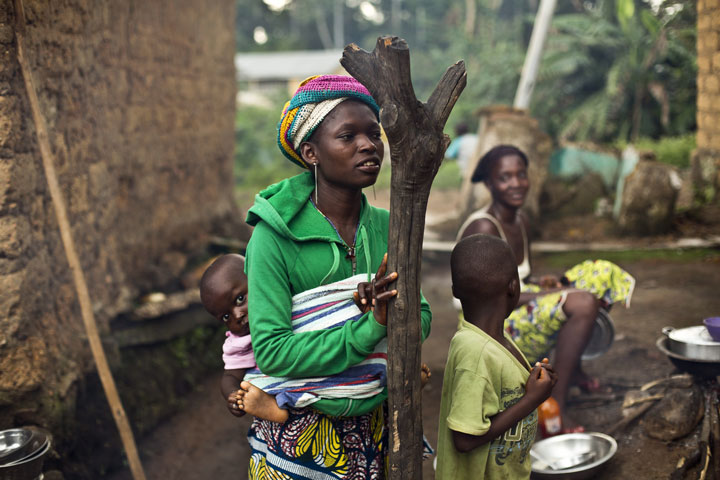GUECKEDOU, Guinea – West Africa’s fight to contain Ebola has hampered the campaign against malaria, a preventable and treatable disease that is claiming many thousands more lives than the dreaded virus.

In Gueckedou, near the village where Ebola first started killing people in Guinea’s tropical southern forests a year ago, doctors say they have had to stop pricking fingers to do blood tests for malaria.
Guinea’s drop in reported malaria cases this year by as much as 40 per cent is not good news, said Dr. Bernard Nahlen, deputy director of the U.S. President’s Malaria Initiative. He said the decrease is likely because people are too scared to go to health facilities and are not getting treated for malaria.
“It would be a major failure on the part of everybody involved to have a lot of people die from malaria in the midst of the Ebola epidemic,” he said in a telephone interview. “I would be surprised if there were not an increase in unnecessary malaria deaths in the midst of all this, and a lot of those will be young children.”
Figures are always estimates in Guinea, where half the 12 million people have no access to health centres and die uncounted. Some 15,000 Guineans died from malaria last year, 14,000 of them children under five, according to Nets for Life Africa, a New York-based charity dedicated to providing insecticide-treated mosquito nets to put over beds. In comparison, about 1,600 people in Guinea have died from Ebola, according to statistics from the World Health Organization.
Malaria is the leading cause of death in children under five in Guinea and, after AIDS, the leading cause of adult deaths, according to Nets for Life.
- Buzz kill? Gen Z less interested in coffee than older Canadians, survey shows
- ‘She gets to be 10’: Ontario child’s heart donated to girl the same age
- Canada updating sperm donor screening criteria for men who have sex with men
- Bird flu risk to humans an ‘enormous concern,’ WHO says. Here’s what to know
READ MORE: Gates Foundation boosts aid to stamp out malaria; targets Ebola
Ebola and malaria have many of the same symptoms, including fever, dizziness, head and muscle aches. Malaria is caused by bites from infected mosquitoes while Ebola can be contracted only from the body fluids of an infected victim – hence doctors’ fears of drawing blood to do malaria tests.
People suffering malaria fear being quarantined in Ebola treatment centres and health centres not equipped to treat Ebola are turning away patients with Ebola-like symptoms, doctors said.
WHO figures from Gueckedou show that of people coming in with fever in October, 24 per cent who tested positive for Ebola also tested positive for malaria, and 33 per cent of those who did not have Ebola tested positive for malaria – an indication of the great burden of malaria in Guinea.
Malaria killed one of 38 Cuban doctors sent to Guinea to help fight the Ebola outbreak. One private hospital had a kidney dialysis machine that could have saved his failing organ but the clinic was shut after several people died there of Ebola.
The U.S. President’s Malaria Initiative ground to a halt in Guinea months ago and the WHO in November advised health workers against testing for malaria unless they have protective gear.
The malaria initiative is doing a national survey of health facilities and elsewhere to try to find out “what’s actually happening here … where people with malaria are going,” said Nahlen, of the U.S. campaign. There was some positive news in Guinea – it had just completed a national mosquito net campaign against malaria when Ebola struck, he said.
Neighbouring Liberia, on the other hand, suspended the planned distribution of 2 million nets, said Nahlen.
In Sierra Leone, the third country hard-hit by Ebola, Doctors Without Borders took unprecedented, pre-emptive action this month, distributing 1.5 million antimalarial drugs that can be used to both prevent and treat, aiming to protect people during the disease’s peak season.
“Most people turn up at Ebola treatment centres thinking that they have Ebola, when actually they have malaria,” said Patrick Robataille, Doctors Without Borders field co-ordinator in Freetown. “It’s a huge load on the system, as well as being a huge stress on patients and their families.”
He said a second distribution is planned in Freetown and western areas most affected by Ebola. Robataille said the huge delivery of antimalarial drugs was “in proportion to the scale of the Ebola epidemic – it’s massive.”

Comments